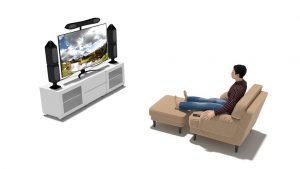Everyone has experienced the overwhelming feeling of anxiety at one time or another. When you were in high school it may have been a big test that you stressed about the night before, or the day before start a new job. The anxious feelings you have before any big life event are felt by most people, however when you experience anxiety day after day, you should take steps to ease these feelings of helplessness and panic. Luckily, there are several things you can do each and every day to lessen the grip anxiety has on your life and gain more control of your emotions.
Write It Down
Try to figure out exactly what is making you feel anxious by writing down your thoughts in a journal. Journaling on a daily basis can improve your mental and physical health because it helps you define your internal thoughts and put them on paper. Write fast, and without worry about grammar, spelling, or fear that someone will find it and read it.
making you feel anxious by writing down your thoughts in a journal. Journaling on a daily basis can improve your mental and physical health because it helps you define your internal thoughts and put them on paper. Write fast, and without worry about grammar, spelling, or fear that someone will find it and read it.
Limit Caffeine and Alcohol
Alcohol and coffee can both exacerbate the effects of anxiety. It doesn’t mean you have to cut them out either entirely, but use them both in moderation. Try not to have caffeine in the afternoon, as this can cause you to be up later than normal and affect your sleep schedule. Drinking too much alcohol in the evening can lead to a restless sleep. Although alcohol can put you to sleep, it’s not quality sleep that will have you feeling rested the next day.
 Exercise
Exercise
We all know exercise has many health benefits, but it also dulls the intensity of anxiety. A good exercise regimen that includes a couple hours a week of moderate exercise can help you keep your anxiety in check as well as giving you a boost of energy and confidence.
Practice Good Breathing
Oftentimes when faced with stress, we will hold our breaths. When you feel very anxious, take a moment to focus on your breathing and take a few deep breaths. Try your best to bring your attention to your breathing and not think about anything else to give your mind a quick break and make sure you’re breathing properly. Deep breathing triggers a relaxation response, helping us to calm down and take a step back.
Try not to Dwell on the Past
Maybe you said or did something embarrassing or made a mistake. Try not to dwell on what has happened and definitely don’t let it keep you from enjoying the things you love. Chances are, the worry you have about a particular event is not even being thought of by those who witnessed it.









